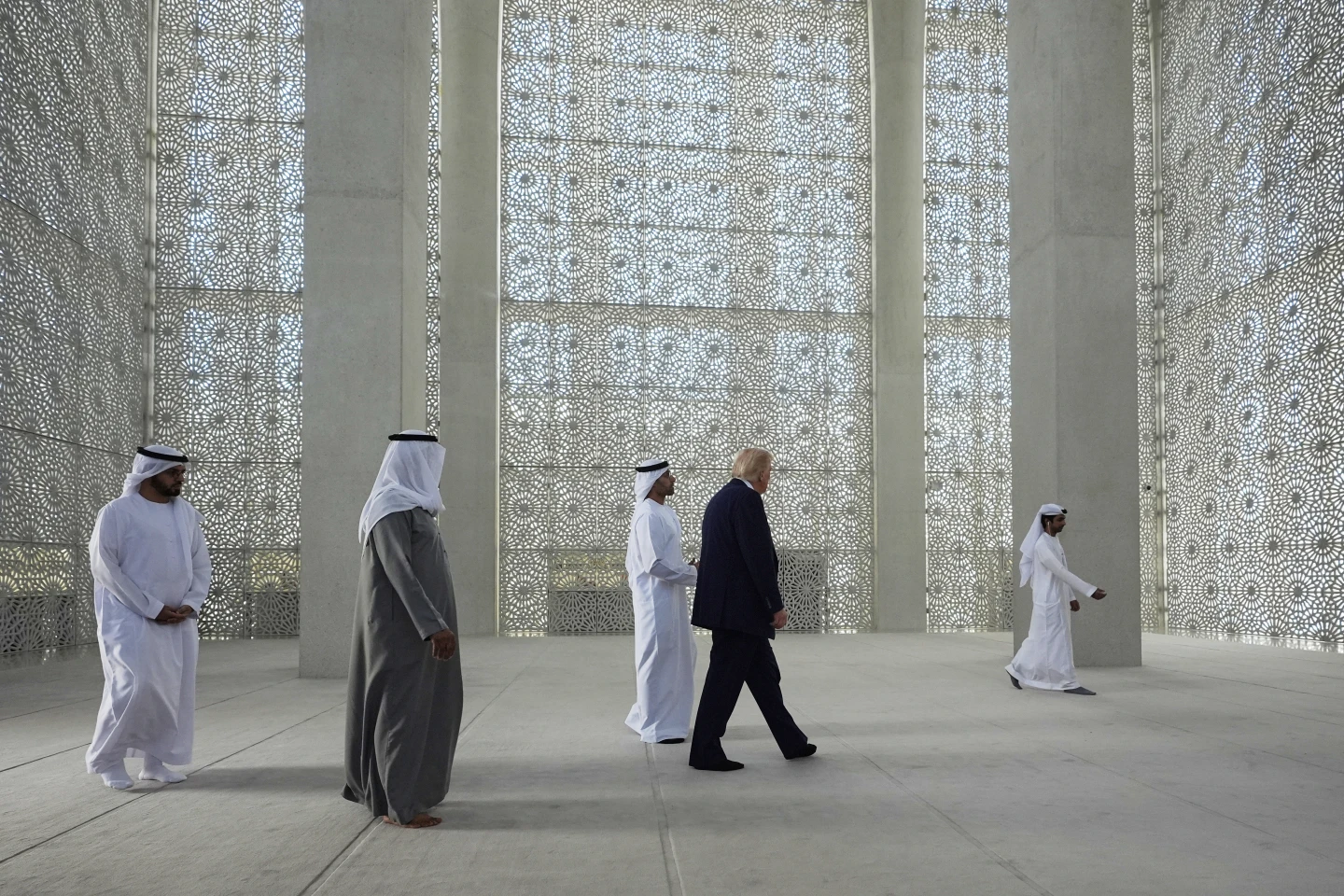On a Landmark Middle East Tour, President Donald Trump Visits Holy Mosques—While Israel Watches in Silence
As President Donald Trump flies from one palace to another, warmly embracing Arab leaders, visiting the sanctity of mosques, and announcing the dawn of a new Middle East, many in Israel are growing anxious—fearing that their historically closest ally in the White House may be losing interest.
On a Landmark Middle East Tour, President Donald Trump Visits Holy Mosques—While Israel Watches in Silence
On a Landmark Middle East Tour, President Donald Trump Visits Holy Mosques—While Israel Watches in Silence
As President Donald Trump flies from one palace to another, warmly embracing Arab leaders, visiting the sanctity of mosques, and announcing the dawn of a new Middle East, many in Israel are growing anxious—fearing that their historically closest ally in the White House may be losing interest.
For decades, Israel has leveraged its special relationship with the United States to act as Washington’s gatekeeper in the Middle East. From the Camp David Accords with Egypt to the Abraham Accords during Trump’s first term, Arab nations seeking U.S. favor generally had to align themselves with Israel first. And if their interests clashed with Israel’s, they typically lost.
But on Wednesday, Israel’s disappointment grew as Saudi Arabia and Turkey mediated a historic meeting between Trump and Syria’s new president. Trump presented the lifting of sanctions on Syria as a diplomatic courtesy to Saudi Crown Prince Mohammed bin Salman and Turkish President Recep Tayyip Erdoğan. Israel, which still views Syria as a major security threat, was left sidelined.
Meanwhile, Trump is moving rapidly toward high-profile achievements—securing large investment deals and diplomatic victories, such as a ceasefire between India and Pakistan and the release of hostages. In contrast, Israeli Prime Minister Benjamin Netanyahu has little to offer in this new diplomatic landscape.
For the past 19 months, Israel has conducted a relentless military campaign in Gaza, killing thousands of Palestinians and destroying many towns. Yet it has failed to achieve its two main objectives: defeating Hamas and rescuing the hostages taken during the October 7, 2023 attacks.
Netanyahu has refused to end the war in exchange for the release of the remaining hostages and has rejected any pathway toward a Palestinian state—a key condition for Saudi Arabia’s historic recognition of Israel.
Eytan Gilboa, an expert on U.S.-Israel relations, noted:
“Trump has given Israel many opportunities—even supplying munitions banned by the Biden administration to help end the Gaza war. That’s what Trump wants.”
“But the war is only escalating. In Trump’s eyes, Netanyahu is increasingly becoming a defeated leader.” Trump excluded Israel from his first major foreign trip, choosing instead to visit Saudi Arabia, Qatar, and the United Arab Emirates.
He also struck a deal with Hamas to free an American hostage from Gaza—while Israel continues its campaign to destroy Hamas.
Additionally, Trump brokered a ceasefire with the Houthi rebels, which has allowed them to continue their attacks on Israel. He is even engaged in nuclear discussions with Iran, with the possibility of a new deal on the horizon—one Israel vehemently opposes.










